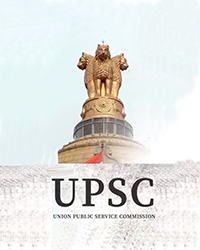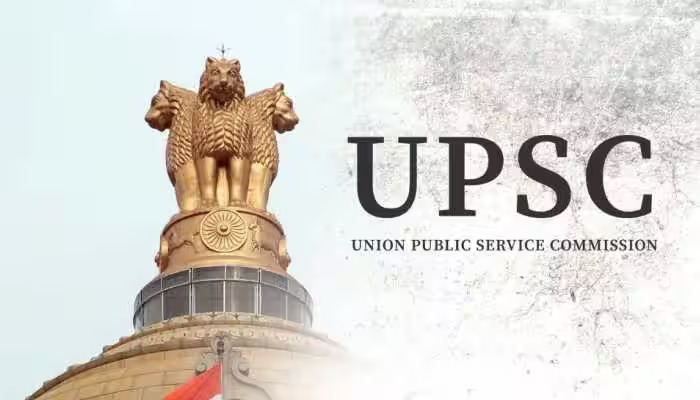
22 Jun A Complete Guide To UPSC

INTRODUCTION
The UPSC (Union Public Service Commission) is a constitutional body in India responsible for conducting various prestigious examinations to recruit individuals into the civil services, including the Indian Administrative Service (IAS), Indian Police Service (IPS), Indian Foreign Service (IFS), and several other central services.
UPSC Post List
There are 3 types of UPSC Posts: All Indian Civil Services, Group A Civil Services, and Group B Civil Services. After clearing the UPSC exam, candidates can be appointed to various prestigious services and positions within the government. Some of the options include the UPSC Post List for each type of service:-
Civil Services Posts under All Indian Services
- Indian Administrative Service (IAS)
- Indian Police Service (IPS)
- Indian Forest Service (IFoS)
UPSC Posts List under Group A Civil Services
- Indian Foreign Service (IFS)
- Indian Audit and Accounts Service (IAAS)
- Indian Communication Finance Services (ICFS)
- Indian Postal Service (IPoS)
- Indian Railway Traffic Service (IRTS)
- Indian Revenue Service (IRS)
- Railway Protection Force (RPF)
- Indian Civil Accounts Service (ICAS)
- Indian Railway Accounts Service (IRAS)
- Indian Railway Personnel Service (IRPS)
- Indian Trade Service (ITS)
- Indian Corporate Law Service (ICLS)
- Indian Defence Accounts Service (IDAS)
- Indian Defence Estates Service (IDES)
- Indian Information Service (IIS)
- Indian Ordnance Factories Service (IOFS)
UPSC Posts List under Group B Civil Services
- Armed Forces Headquarters Civil Service
- DANICS
- Pondicherry Civil Service
- Pondicherry Police Service
- DANIPS
Eligibility
A wide range of individuals from diverse backgrounds can appear for UPSC examinations such as Graduates, Young professionals, Postgraduates, Civil Servants from State Services, and individuals with a passion for public services.
What are the exams conducted by UPSC for selection into civil services?
- Civil Services Examination (CSE)
- Engineering Services Examination (ESE).
- Indian Forestry Services Examination (IFoS).
- Central Armed Police Forces Examination (CAPF).
- Indian Economic Service and Indian Statistical Service (IES/ISS).
- Combined Geo-Scientist and Geologist Examination.
- Combined Medical Services (CMS).
- Special Class Railway Apprentices Exam (SCRA).
- Limited Departmental Competitive Examination for Selection of Assistant Commandant. (Executive) in CISF.
UPSC CSE Exam Pattern and Syllabus
UPSC Civil Services Exam (CSE) consists of 3 stages. The stages are
- Preliminary Exam (objective)
- Main Exam (written)
- Interview (personality test)
Prelims
(Preliminary Exam) – The Civil Services Preliminary exam comprises two compulsory papers of 200 marks each (General Studies Paper-I and General Studies Paper-II). The questions will be of multiple-choice, objective type.
The General Studies Paper-I
- Has 100 questions broadly covering the following topics, with a maximum of 200 marks to be solved in 2 hours.
- It is all about current events of National and International importance, the history of India and the Indian National Movement, Indian and World Geography, Indian policy, and government, economic and social development, General issues on environmental ecology, and general science.
- It has a cut-off (i.e. it changes every year).
The General Studies Paper-II
- It compromises 80 questions from the following topics carrying a maxim of 200 marks to be solved in 2 hours.
- Comprehension, Interpersonal Skills including communication skills, Logical reasoning, and analytical skills, decision-making and problem-solving, general mental ability, basic numeracy (number and their relations, order of magnitude, etc), data interpretation, etc.
- It is a qualifying exam, and does not have any cut-off.
Mains – The written examination (main) will consist of nine papers, but only 7 papers will be counted for the final merit ranking. For the remaining two papers, the candidate should secure the minimum marks prescribed by the commission each year. It is a subjective paper.
Paper A is about language paper (Any Indian language to be selected). It is a qualifying paper of about 300 marks.
Paper B is about English paper. It is a qualifying paper of about 300 marks.
Paper to be counted for merit
Paper I – Essay (250 marks)
Paper II – General Studies-I ( Indian Heritage and Culture, History and Geography of the World and Society) (250 marks)
Paper III – General Studies-II ( Governance, Constitution, Polity, Social Justice, and International Relations) (250 marks)
Paper IV- General Studies -III (Technology, Economic Development, Biodiversity, Environment, Security, and Disaster Management) (250 marks).
Paper V- General Studies -IV (Ethics, Integrity, and Aptitude) It is more of a case study.
Paper VI – Optional Subjects – Paper -I (Candidates will select) (250 marks).
Paper VII – Optional Subjects – Paper -II (Candidates will select) (250 marks).
Personality Test or Interview – The candidate will be interviewed by a Board who will have before them a record of his/her career. He/she will be asked questions on matters of general interest. It is the final round of 275 marks and according to the rank, you will be allotted the services or post in civil services.
Note – The marks of the Preliminary Exam are not counted for the final ranking. Prelims is a screening test to select the candidates for the Main Exam. A candidate’s final rank in the Civil Service Exam depends only on the mark scored in the Main exam and Interview. The main exam has 1750 marks while the interview has 275 marks. Total marks are calculated out of 2025.
What is the UPSC age limit for the IAS Exam?
To attempt the IAS exam, the candidate should have crossed 21 years (by August 1, the year in which he/she attempts the exam).
The upper age limit is 32 for the General Merit category, 35 for the Other Backward Classes (OBC) and 37 for Scheduled Classes (SC) and Scheduled Tribes (ST).
Skills Required For UPSC Aspirants
Some essential skills that can be beneficial for UPSC aspirants are strong general awareness, critical thinking and analytical skills, clear communication skills, research and information gathering, time management and discipline, problem-solving and decision making, leadership and teamwork, emotional intelligence and interpersonal skills, adaptability and resilience, ethics and integrity and many more.
Several reasons why someone might choose to become a civil servant
- One of the primary motivations for individuals to become civil servants is the desire to serve the public and make a positive impact on society.
- Civil servants work in various government departments and agencies, helping to develop and implement policies and programs that benefit the community.
- Civil service positions often provide greater job security compared to the private sector. Once you are hired as a civil servant, you generally enjoy more stable employment, with protections against arbitrary termination and a clear path for career advancement.
- Many civil service positions offer opportunities for professional development and training. Civil servants often have access to specialized training programs and resources that help them enhance their skills, acquire new knowledge, and grow in their careers.
- Civil servants have the potential to influence and shape public policy and decision-making processes. By working within government agencies, civil servants can contribute their expertise and perspectives to develop policies that address societal challenges and promote the common good.
It is important to consider your own interests, skills and long term goals in order to make informed decisions about your own career path. Achieving success in UPSC examination needs persistent hard work and sincere commitment from the student. Before commencing the preparation for these examinations students must evaluate his interest and ensure that it is what he/she wants to pursue as a career. Seeking guidance from career counselors, conducting thorough research and gaining practical experience through internships or part time jobs can be helpful in making the right choices.
At the Ramdhar Maheshwari Career Counseling Center (RMCC), we specialize in assisting individuals in understanding their personality traits, interests, skills, and abilities through our comprehensive Career Guidance Program. We can provide guidance on whether pursuing the UPSC exam aligns with your personality and interests, and help you identify your strengths and areas of improvement. Our center aims to help you explore various career options and enhance your abilities, allowing you to make a well-informed decision about your career path.



No Comments